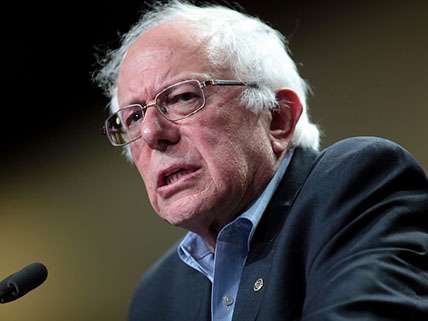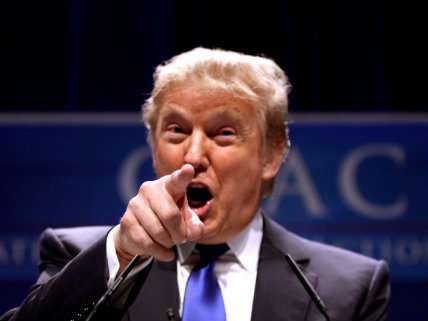Bernie Sanders and Donald Trump Win in New Hampshire. That's a Rebuke to the Political Status Quo

One way to interpret the results of tonight's New Hampshire primary votes, in which both Donald Trump and Bernie Sanders won by clear margins, is as a rebuke to America's two-party political system.
Both Sanders and Trump, the Democrat and the Republican respectively, are figures who stand outside the traditional infrastructure of their respective parties. Both are essentially running as independents, just with R and D attached to their names.
Indeed, tonight's results represent a rebuke not only to the parties, but to America's entire class of political and economic elites. Both men, in their own very different ways, are running campaigns that are explicitly anti-establishment, anti-Washington, and anti-politics as usual, along with varying levels of hostility to Wall Street.
Hostility and anger seem to be the defining emotions of this campaign on both sides of the aisle. Both campaigns have channeled simmering voter anger with cronyism, with the sort of consistently cozy relationships between the Washington and Wall Street elite that lead to bailouts and tax-code favoritism. No one seems particularly enamored with Obamacare in its current form (even Hillary Clinton now casts it as merely a necessary stepping stone on the path to true universal coverage). Sanders and Trump both tout their opposition to the war in Iraq, in contrast to their establishment opponents. On the Republican side, many voters rank government spending as a top issue (echoing a similarly strong sentiment in Iowa), and nine out of 10 say they're dissatisfied with government.
In this way, tonight's results can be understood as a victory for those skeptical of government and frustrated with the Washington establishment, a win for those who find little to love in the political status quo and who make it their business to note all the ways that government has failed and continues to fail.
And yet there is another way to interpret tonight's results as well, not so much as a wholesale rebuke to the system but as a demand that it work better, or at least that it produce the results that voters (certain types of voters, anyway) desire.
Despite the overlap between his fans and Ron Paul's backers, and his frequent criticisms of government as it is now, Bernie Sanders is in no way a government skeptic. He's a self-described socialist who favors overturning Obamacare and replacing it with a fantastically expensive, fully government-run single payer health care system, taxing the wealthy at a top rate of 77 percent, and new government spending on the order of more than $19 trillion. Sanders promises a political revolution, and in that sense is opposed to the system as it stands, but the gist of that revolution is that the benefits of government and the economy will accrue to ordinary Americans, to the working middle-class, broadly defined, and not to political and economic elites.

Trump, meanwhile, makes his pitch from a different angle, but ultimately relies on much the same appeal. He promises to deport illegal immigrants, build a wall along the southern border, stop Muslims from immigrating into the country, and oppose trade deals. He favors eminent domain, and wants to replace Obamacare with a undefined system of universal coverage funded by the government (in the past, he's voiced support for single payer systems). Aside from immigration and trade, Trump's biggest promise is that he would use his skills as a businessman to make good deals that make government actually work. His pitch is that government should be wielded by political leaders as a powerful and effective tool to serve the interests of the American people—or least his supporters. Like Bernie Sanders, he is effectively proposing a revolution designed to bring about a stronger, more effective government. That's how he wants to make America great again.
Neither of these ways of understanding tonight's election results is wrong, nor are they wildly contradictory. Indeed, they are best understood as complements to each other, flip sides of the same impulse. The frustration with government and the political status quo is real and runs deep in the American electorate on both sides of the aisle.
Many of tonight's voters in New Hampshire, and probably many voters elsewhere, now agree that governance has failed, that the political establishment cannot be trusted—that government simply does not work for them. But despite those frustrations, what the twin successes of both Trump and Sanders both also suggest is that many voters continue to wish that it would.


Show Comments (461)